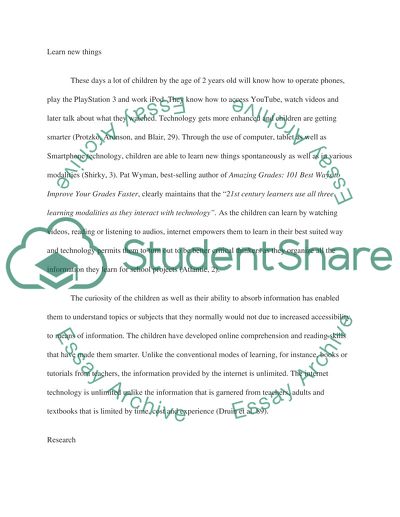Cite this document
(“How Google Is Making Us Smarter Research Paper Example | Topics and Well Written Essays - 2250 words”, n.d.)
How Google Is Making Us Smarter Research Paper Example | Topics and Well Written Essays - 2250 words. Retrieved from https://studentshare.org/social-science/1682555-how-google-is-making-us-smarter
How Google Is Making Us Smarter Research Paper Example | Topics and Well Written Essays - 2250 words. Retrieved from https://studentshare.org/social-science/1682555-how-google-is-making-us-smarter
(How Google Is Making Us Smarter Research Paper Example | Topics and Well Written Essays - 2250 Words)
How Google Is Making Us Smarter Research Paper Example | Topics and Well Written Essays - 2250 Words. https://studentshare.org/social-science/1682555-how-google-is-making-us-smarter.
How Google Is Making Us Smarter Research Paper Example | Topics and Well Written Essays - 2250 Words. https://studentshare.org/social-science/1682555-how-google-is-making-us-smarter.
“How Google Is Making Us Smarter Research Paper Example | Topics and Well Written Essays - 2250 Words”, n.d. https://studentshare.org/social-science/1682555-how-google-is-making-us-smarter.


